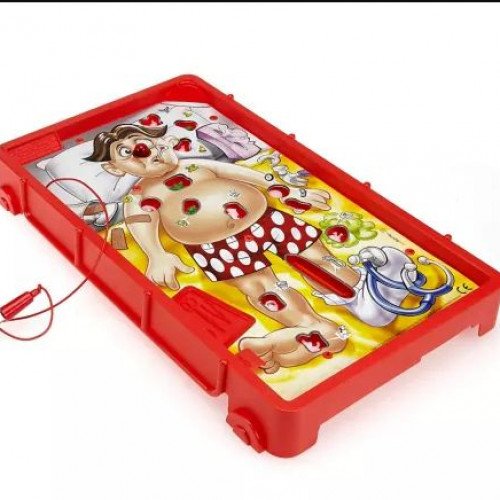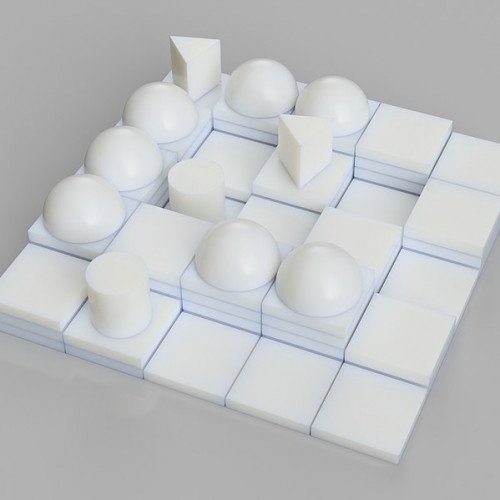OPERATION VS SANTORINI

OPERATION
Operation is a battery-operated game of physical skill that tests players' hand-eye coordination and fine motor skills. The game's prototype was invented in 1964 by John Spinello, a University of Illinois industrial design student at the time, who sold his rights to the game to renowned toy designer Marvin Glass for a sum of US$500 and the promise of a job upon graduation (a promise that was not upheld). Initially produced by Milton Bradley in 1965, Operation is currently made by Hasbro, with an estimated franchise worth of US$40 million. The game is a variant on the old-fashioned electrified wire loop game popular at funfairs. It consists of an "operating table", lithographed with a comic likeness of a patient (nicknamed "Cavity Sam") with a large red lightbulb for his nose. This could be a reference to classic cartoons, where ill characters' noses turn red. In the surface are a number of openings, which reveal cavities filled with fictional and humorously named ailments made of plastic. The general gameplay requires players to remove these plastic ailments with a pair of tweezers without touching the edge of the cavity opening. Operation includes two sets of cards: The Specialist cards are dealt out evenly amongst the players at the beginning of the game. In the U.S and Australian version, players take turns picking Doctor cards, which offer a cash payment for removing each particular ailment, using a pair of tweezers (dubbed “Electro Probe” in earlier versions) connected with wire to the board. Successfully removing the ailment is rewarded according to the dollar amount shown on the card. However, if the tweezers touch the metal edge of the opening during the attempt (thereby closing a circuit), a buzzer sounds, Sam's nose lights up red, and the player loses the turn. The player holding the Specialist card for that piece then has a try, getting double the fee if he or she succeeds. Since there will be times when the player drawing a certain Doctor card also holds the matching Specialist card, that player can purposely botch the first attempt in order to attempt a second try for double value. The winner is the player who holds the most money after all the ailments are extracted. Subsequent later games removed the money and cards, and the winner of these editions is the player who removes the most ailments.
Statistics for this Xoptio

SANTORINI
Santorini is an abstract strategy board game for 2-4 players designed and released in 2004 by Gordon Hamilton and republished via Kickstarter in 2016 by Roxley Games. Inspired by the architecture of cliffside villages on Santorini Island in Greece, and primarily designed for two players, the game is played on a grid where each turn players build a town by placing building pieces up to three levels high. To win the game, players must move one of their two characters to the third level of the town. Each turn of play involves moving one of your two pieces around a 5-by-5 grid each turn and then placing a tile adjacent to the moved piece, building up that spot of the board. On subsequent turns, pieces may be moved onto one of these built-up tiles, but only one level up at a time. Pieces may also be moved down any number of levels. Players may also place a special dome tile on top of a three-level building, which prevents a player from moving onto that spot for the remainder of the game. The primary winning condition is to get one of your pieces onto the third level, though players may also win if their opponent is unable to make a move. The Roxley Games version of Santorini introduced a god powers variant, which gives each player a unique way to break the rules. After being directly released and sold by Hamilton in 2004, Roxley Games ran a Kickstarter campaign during March-April 2016, drawing over 7,100 backers and raising over C$700,000, the most successful Kickstarter campaign ever based in Alberta. While the original release used plain white blocks as components, the Roxley version featured an enhanced cartoon-like look to the game, which Hamilton credits for success of the Kickstarter campaign. The game was released in retail outlets in January 2017.